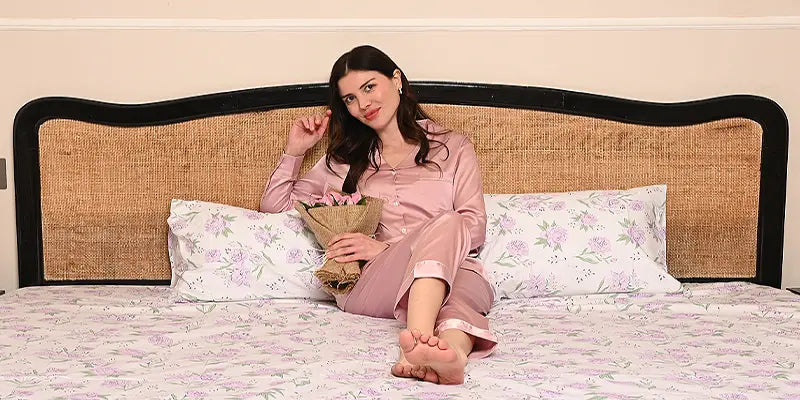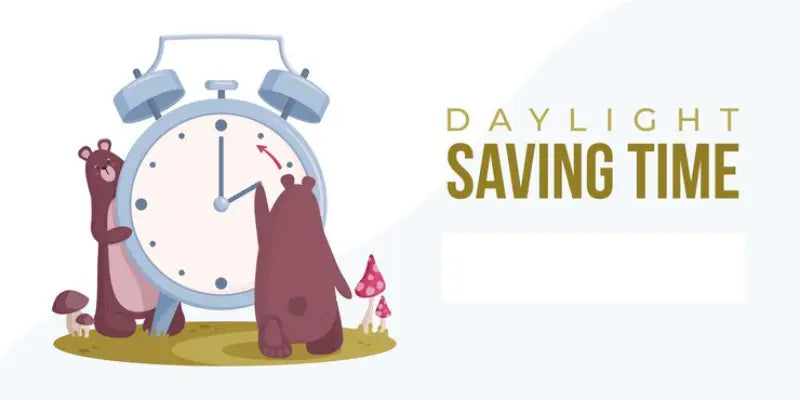
Which Direction is Best to Sleep in?
Which direction is perfect to sleep in is the most common question amongst people, but did you know that the direction in which you sleep could impact your wellbeing? From science to ancient traditions like Vastu Shastra, many believe that the direction you face while sleeping can affect how rested and energized you feel.
In this blog, we’ll explore the best sleeping directions scientifically, best sleeping direction according to vastu shastra, best direction to sleep for couples, best direction to sleep in pregnancy, best direction to sleep for students, best direction to sleep for kids, what side of the bed one must sleep and explain why they might matter.
What is the Best Direction to Sleep Scientifically?
Scientifically, the Earth’s magnetic field is one of the key factors that may affect your sleep. Our bodies, particularly the head and heart, have their own magnetic fields. When you sleep, the alignment of your body with the Earth's magnetic field could potentially impact your circadian rhythm (the body’s natural sleep wake cycle).

Experts suggest that sleeping with your head facing north or south can align your body in a way that promotes a more restful sleep. However, sleeping with your head towards the east is considered best direction to sleep for energy and alertness.
Let’s break it down:
- Head North: It is Some believe that sleeping with your head facing north may disrupt the body’s natural energy flow.
- Head South: This direction is often recommended for good health and deep, restful sleep.
- Head East: Many people find that sleeping with their head towards the east makes them feel more energized upon waking up.
- Head West: This is usually not recommended as it may disrupt the body's energy.
For a balanced sleep cycle, sleeping with your head towards the south is scientifically thought to be the best.
What is the Best Direction to Sleep According to Vastu Shastra?
Vastu Shastra, an ancient Indian science of architecture, suggests that the direction in which we sleep has a big impact on our physical, mental, and emotional wellbeing. According to Vastu, sleeping in the right direction can bring peace, good health, and prosperity.
Here's what the tradition says:
Key Vastu Guidelines for Sleeping
- Head Towards the South: Vastu Shastra recommends sleeping with your head facing south. This is considered the most beneficial as it aligns with the Earth's magnetic field, helping to maintain harmony and health.
- Head Towards the East: Sleeping with your head towards the east is said to bring peace of mind, spiritual benefits, and enhanced memory.
- Head Towards the West: This direction is believed to bring instability and may cause nightmares or disturbed sleep.
- Head Towards the North: It is strictly advised not to sleep with your head towards the north. This can cause restlessness, poor sleep quality, and even health problems, according to Vastu.
According to Vastu, the best direction for sleeping is with your head facing south, followed by east.
Best Direction to Sleep for Couples
For couples, sleeping in the right direction can help create a harmonious relationship. In Vastu Shastra, the couple's relationship is thought to be influenced by the way they sleep together.
- Head Facing South or East: Both directions are considered auspicious for couples. Sleeping with the head facing south is ideal for health, while facing east can increase emotional harmony and spiritual connection.
- Avoid Sleeping in a Conflict Zone: If one partner sleeps with their head facing north and the other faces west, this can create energy conflict and lead to misunderstandings or stress.
Couples should ideally sleep with their heads facing south or east to ensure a peaceful and loving relationship.
Best Direction to Sleep During Pregnancy
Pregnancy is a time when a woman’s body goes through many changes, and getting good sleep is essential. As a result, the question arises in the mind that as per vastu in which direction to sleep in. The best sleeping position and direction can help both mother and baby get the rest they need.
- Sleeping on the Left Side: Sleeping on the left side is recommended during pregnancy. This position increases blood flow to the fetus and improves kidney function.
- Direction: Facing east is often recommonded the best direction to sleep, as it promotes a calm and peaceful environment for both mother and baby.
- Avoid Sleeping on Your Back: Sleeping on your back can put pressure on your back and the baby’s organs, so it’s better to avoid it during pregnancy.
Pregnant women should sleep on the left side with their head facing east for the best health benefits.
Best Direction to Sleep for Students
For students, sleep is crucial for memory consolidation, concentration, and overall mental health. The direction in which they sleep can play a role in how well they study and retain information.
- Head Facing East: Sleeping with your head towards the east is considered great for memory, focus, and overall mental clarity.
- Avoid Facing North or West: These directions can cause lethargy and distract the mind, making it harder to concentrate on studies.
Students should sleep with their head facing east for improved concentration, learning, and mental sharpness.
Best Direction to Sleep for Kids
Kids need a lot of sleep for their growth and development, and the right direction can help them get the quality sleep they need.
- Head Facing South or East: Both these directions are beneficial for kids. South helps with health and vitality, while east enhances mental clarity.
- Comfort is Key: While direction matters, kids need to feel comfortable in their own sleep space. Make sure their bed is cozy, and the room is calm and quiet.
Kids should ideally sleep with their head facing south or east for better physical and mental development.
What is The Right and Wrong Side of the Bed
Aside from the direction, the side of the bed you sleep on also has its significance in both science and Vastu Shastra.
Right Side vs. Left Side of the Bed
- Right Side (for most people): Generally, sleeping on the right side of the bed is considered a better option for health and comfort. This is because the left side of your body is associated with the heart, and sleeping on the right side may reduce the pressure on the heart and help circulation.
- Left Side: For some people, sleeping on the left side can aid digestion, as it allows the stomach to be in the optimal position for processing food.
For most individuals, the right side of the bed is preferred for better circulation, but this can vary based on individual comfort.
How do couples decide who sleeps on which side of the bed?
There is no evidence that men and women sleep in different directions, but there are some common beliefs about where people sleep. Some say men tend to sleep on the right side of the bed, while women prefer the left. Others say that people who sleep on the left side wake up in a good mood, while people who sleep on the right side wake up grumpy.
Conclusion
While there are different beliefs and scientific perspectives on the best sleeping direction, it ultimately comes down to what works best for you. Some people may feel more rested with their head facing a particular direction, while others may find that comfort is the most important factor.
Regardless of direction, make sure you prioritize good sleep hygiene, such as having a consistent sleep schedule, a dark, quiet room, a comfortable mattress and a good quality pillow. Experiment with the directions we’ve mentioned, and see what gives you the best rest and energy the next day.








